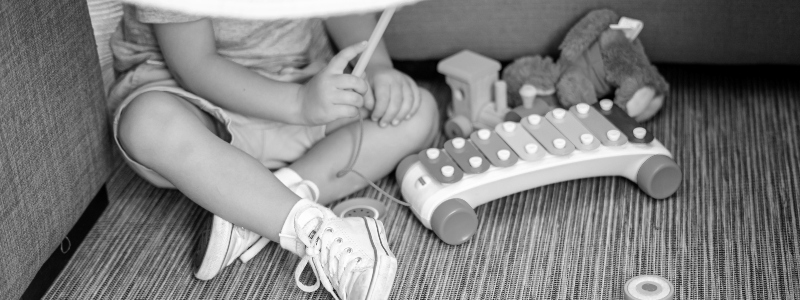Children who have been neglected and/or abused live to one degree or another with a lifelong legacy which can impact every aspect of their lives. Depending on the severity of abuse and neglect, the impact on the relationship with self and others will be significant and show up in many ways. I have written previously about the psychological impact on children who grow up in cults, and the kinds of abuse and neglect that takes place in such high-control groups. However, families can act like mini-cultic systems with their own ways of keeping secrets, coercing, and manipulating, and being socially presentable whilst hiding a darker truth.
What does a ’healthy’ family environment look like?
No family is perfect or entirely psychologically and emotionally healthy. However, there are families where ‘good enough care’ takes place. By ‘good enough’ I mean providing children with consistent emotional, psychological, and physical safety. For example: showing genuine interest and curiosity in the child, supporting their learning and developmental needs, protecting them from harm, expressing sincere love and care, respecting the child’s natural dependency needs whilst also encouraging their growing independence, to name a few. For a child to grow up with a relatively robust sense of self, they need to have grown up with adults who learnt to attune to them. This means respecting their individuality and uniqueness, whilst modelling and maintaining boundaries, acknowledging that children need to know their limitations and respect who is in charge, and ultimately, building and maintaining a good and healthy relationship with your children throughout their lives.
What does an unhealthy family environment look like?
There can be varying degrees of dysfunction, which will impact children in several ways. In such an environment parents will generally lack the capacity to emotionally attune to their children. In these families the needs of the child are not thought about, let alone understood. In an environment where there is ongoing stress or threat, as is seen in cases of abuse and neglect, the child will grow up lacking in psychological and emotional safety and typically learn to self-soothe rather than look for soothing from the parents or carers. Some children are forced to take excessive responsibility from an early age, for instance taking care of their family members in a role reversal situation. Children who suffer neglect usually withdraw into themselves and develop an acceptable false self to interact with the world. This is because showing distress or any genuine emotion was not an option in their family home. Children who suffer sexual and/or physical abuse learn to cope with intrusive behaviour by either becoming invisible or aggressive.
The adult survivor of neglect and abuse
Both neglectful and abusive behaviour in families tells the child that they do not matter to the very people to whom they should matter most. This type of emotional betrayal is very difficult for a child to process and overcome later in life. Once the relationship between primary carers and their children is severed in such a profound way, repair can be long and painful if it happens at all. Parents or carers who abuse and/or neglect their children are most likely psychologically damaged themselves and usually unwilling to learn from their mistakes. This is why repair is very rare.
The child will grow into an adult having missed out on some fundamental developmental steps and having developed psychological defences to cope with their upbringing. These defences, once vital for psychological survival, usually remain into adulthood until they begin to fail, which is when people usually come to therapy. Survival strategies learnt in childhood to cope with a hostile or neglectful environment are not conducive to healthy relationships in adult life. For instance, hypervigilance or emotional withdrawal can make relating to others problematic. For a relationship to grow it must be built on safety and trust. If this was absent or sparse in a person’s life, they can grow to either settle for very little or develop unrealistic expectations of themselves and other people.
The adult survivor and the search for love
The psychological legacy of childhood abuse and/or neglect has lifelong implications for adult attachments, especially relevant to significant relationships with romantic partners. Falling in love comes with the idealisation of a longed-for relationship and the type of love and emotional attunement that the person never had. The emotional hole left by their upbringing leaves them with an open wound which is usually well disguised. This painful emotional injury cuts deep into the soul. The longing for soothing from another can be a lifelong quest that is never fulfilled, because they either look in the wrong places for it, or it never feels enough despite their partner’s best efforts. It is also common for the adult survivor to seek partners who will display similar traits to their parents, and continue to tragically perpetuate this cycle in their lives and with their children.
Lack of repair
The lack of repair or acknowledgement by the people who inflicted harm is a tragic and painful legacy that many people who suffered neglect and abuse must live with. The ongoing lack of validation or acknowledgement, and dismissal of these lifechanging childhood experiences can feel cruel, confusing and keep the adult survivor in a constant loop of self-blame and self-hate. Often children who are abused and/or neglected are scapegoated by their family and therefore become the recipient of unwanted feelings. This often continues into adulthood where the person feels not only damaged by their childhood experience but as an adult continues to be ostracised, excluded, and blamed for the family issues. The child grows into an adult having never understood why they were and continue to be treated this way, even though they have done nothing wrong.
The therapeutic task
When someone grows up feeling unsafe and mistrustful of those around them, the primary task of any therapy is to rebuild trust and safety through the therapeutic relationship and in the person’s life. When trust has been broken at such a fundamental level, ordinary disappointment can feel at times devastating. The aim is to get the adult survivor to a place where they can learn to trust whilst also looking after themselves, and build relationships with people with whom they feel emotionally, psychologically, and physically safe whilst also having realistic expectations. Holding onto both good and disappointing aspects of relationships (including the one with the therapist) is work which takes a long time. Rebuilding trust also means trusting oneself. Learning to trust one’s thoughts and feelings again, or even for the first time.
Working with shame is another important part of therapeutic work, as the abused and/or neglected child carries a high degree of shame for the experiences they have been through. Depending on the level of abuse and neglect, and therefore the level of dissociation, trauma work is a vital part of the adult survivor’s recovery. Being able to feel a lifetime of hidden and suppressed emotions is painful but also brings back to life certain aspects of oneself that were deadened.
Finally, therapy is a place to hold witness to unthinkable, unspeakable, and unbearable experiences. These experiences must in time be articulated and understood within the limitations of language and the individual’s capacity to comprehend and process emotional pain.
On our website you can find more information about our counselling and psychotherapy services and how to contact our team.
Sam Jahara is a UKCP Registered Psychotherapist, Clinical Superviser and Executive Coach. She works with individuals, couples and groups in Hove and Lewes.
Further reading by Sam Jahara –
There are no shortcuts to growth
5 good reasons to be in therapy
The psychological impact on children who grow up in cults
What psychological processes make us ‘choke under pressure’?

